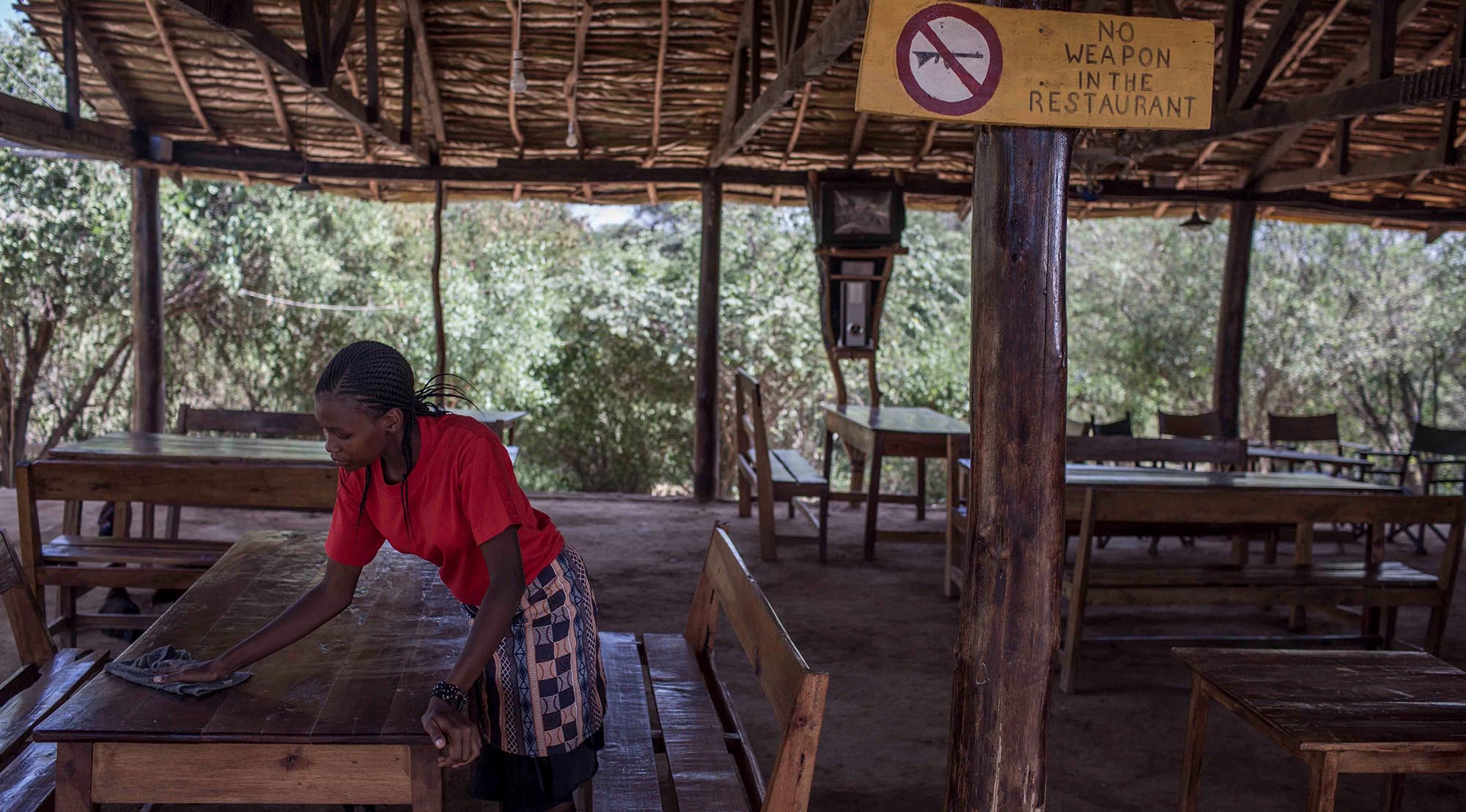Over a decade ago, members of Cuisine sans frontières (Csf) traveled to the wide expanse of the Great Rift Valley on the border between West Pokot and Turkana County in Kenya.
The herds people of the tribes living there were at war over the waterholes and were stealing one another’s cattle. Exploited by local warlords, armed groups formed who ambushed convoys and enriched themselves by smuggling weapons and ammunition.
Despite all this, a project called Cabesi (Camels, Bees, Silk) was successfully established in regions of both West Pokot and Turkana, and the construction of a camel-oriented community center was planned in the small town of Orwa. The idea of introducing the camel to the Pokot as livestock was also intended to offer a solution to the water scarcity caused by climate change. As the Turkana people were already used to farming camels, the camel community center was devised to contribute to the knowledge sharing and reconciliation between the two tribes.
The task for Csf was to create accommodation and a restaurant alongside the camel community center. It provided the materials for construction and sent volunteers to Orwa. From this, the Calabash restaurant was created, with a kitchen, storeroom, dining area, a few simple huts for overnight stays, and a large outdoor space. Beforehand, Csf met the chiefs of the nearby villages and made contact with the leaders of the armed groups. During careful negotiations, the workers presented the concept of the community center combining a restaurant, seminars, and exchange on camels, which was accepted and welcomed.
The opening of Calabash was a major event locally, which attracted over 1,000 people. Goats were slaughtered, ugali and sukuma wiki were prepared, and the premises were decorated with paper lanterns. Representatives from all the tribes were invited, with the request to leave the Kalashnikovs at home. The guests complied, and the inaugural celebration was enjoyed peacefully.
Since then, Csf teams have returned numerous times. The team of locals can cope with the work, but Csf’s presence also protects them from attacks by either side. Today, Calabash is an oasis of peace and provides a meeting place for local residents. There have been no further violent clashes for ten years now. Instead, the center has hosted beauty competitions, theater productions, sports days, movie nights, and football is shown regularly too. Even tourists occasionally spend the night at Calabash. The fighting has reduced considerably, and the establishment is well on the way to becoming self-sustaining. Peacebuilding means working on community building, and cooking is at the heart of the community.


